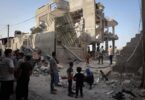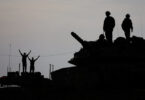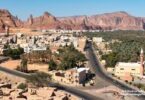Syed Muhammad Abdullah
The meaning that the ‘tribal’ has attained in the public parlance especially in Pakistan and the turbulence that has ever since been associated with the ‘tribal’ region is misleading at best. It has attained negative connotations in a world where linear notions of social development have evoked condescending ideas. If we contextualize it with respect to history, keeping in view what has happened to the ‘tribal’ people elsewhere i.e., Native Americans, Aboriginal Australians etc., we would realize that there is a need to break away from insular beliefs about civilizational progress.
The words and phrases such as tribe, tribal and tribal people, hold a defined bias and contempt for the people of the soil. Oftentimes this word is placed in comparison to the word ‘settlers’ to convey a silent notion of how less or more civilized a certain group of people could be. This is a less discussed dimension of the FATA merger issue as it was believed that imposing a ‘more developed’ politico-legal apparatus would bring them out of their ‘primitive’ state. Thus, disregarding the lessons taught to us by the 200 years history of tribal administration.
Firstly, the yardstick of human development assesses a society against criteria such as, organized and representative decision-making, resort to dialogue, maintaining peace and security, protecting one’s own right, and respect for human dignity. With the valuation of the ‘tribal’ people against the above standards, an organized system of decision making is in place, resolving issues through dialogue is one of their defining characteristics, they do not hesitate to sacrifice their lives where their rights are threatened, and their social hierarchy is based entirely on mutual respect.
Secondly, the central axis of tribal decision-making before the advent of the British was the tribal council or Jirga. However, institutions such as Political Administration and Community Policing i.e., Khasadari system, were introduced as part of the administrative reforms during the British Raj. The Indian Political Service (IPS) was a cadre specifically designed for the purpose, comprising of officers recruited to be posted in the frontier districts (including the present ex-FATA) and Princely states. The reform process was quite tumultuous with wars breaking out and British agents being brutally murdered, because the new system was viewed as limiting their ‘tribal’ autonomy and freedom. Afterwards, when their autonomy was guaranteed and traditions upheld albeit impliedly, only then it gained legitimacy in the eyes of the ‘tribal’ people. The two systems i.e., the British system and the tribal system, conflated into a new system comprising of three pillars: (i) Political Administration, (ii) Tribal Council/Jirga, and (iii) Community Policing (based on collective and territorial responsibility).
This system matured in the next 200 years and could very-well be regarded as a milestone in the history of the ‘tribal’ people, where the less-civilized negotiated with the more-civilized and came to a negotiated settlement where extractive colonial institutions had to cede considerable political power to the tribes. The so called ‘civilized’ people of the settled areas had failed to achieve this.
Coming to more recent times, we have merged tribal area with the settled area, extending the criminal justice system including courts and policing to the former territory, rooting out the 200 years old system based on the negotiated settlement of the tribal people and the British Raj, in a matter of weeks.
The significance of the fact that the British could not extend the ordinary governance structure (prevalent then in the rest of India) to the erstwhile frontier districts, and they had to design a dedicated cadre and department to deal with the extraordinary circumstances of the said districts, was disregarded altogether. The British succeeded in introducing the institution of Political Administration during their reform intervention only when it came in agreement with their local ‘tribal’ traditions.
However, during the recent reform intervention of extending other institutions to the tribal areas, no such evaluation was carried out, let alone assessing its conformity with the local traditions. In fact, the extended court system and policing system directly contradict their cultural norms as the previous system of Jirga (now known as Alternate Dispute Resolution) provided for swift justice and the ‘tribal’ people were used to a system of timely resolution of even their long-standing issues, with an effective reward and punishment system in place.
The downsides of the system were: the divide along tribal lines were rife, some prohibited socio-cultural practices remained protected, and the women folk was entirely absent from the system.
Now, why is this discussion suddenly relevant again? The centuries old system of administration has been rooted out, and the lopsided imposition of political institutions contradicts the very existence of ‘tribalism’; plus, the volatility in the tribal areas is becoming visible and the exodus of the foreign forces from Afghanistan is just around the corner; in such circumstances, do we consider ourselves ready to face the onslaught once the US is out of Afghanistan? In the absence of the trusted institutions, can we actually manage the affairs of the tribal areas without the active presence of the military?
And this is a well-known fact that the erstwhile Political Administration having been a pillar of the overall tribal decision-making process, is still widely trusted by the elders and general populace even in its present deteriorated form. But, can we stop this deterioration further to at least provide an environment of trust to the locals to manage the situation that is to develop in the days to come? I feel for my fellow civil servants serving there in the tribal areas in these testing times.
So, if the British accepted the ‘tribal’ wit and art and gave them the system that fulfilled their requirements despite considering them ‘tribal’, shouldn’t we as their countrymen give them the system they so rightfully deserve? Aren’t we, the ‘civilized’, forcefully imposing our system on them and shredding what is theirs in the name of reforms? Aren’t they more civilized and democratic as they have given a fair chance to all our imported reform interventions, negotiated with us and held dialogue with us? Shouldn’t we accept a system that is based upon their cultural edifice? Shouldn’t we finally accept that ‘tribal’ doesn’t necessary mean less-civilized, and re-evaluate the misinterpretation and inherent bias of the word ‘tribal’ itself?
Isn’t it us, the ‘civilized’ ones, who are in actual need of reforms?
The author is a civil servant and he tweets @syedabdullah100.






